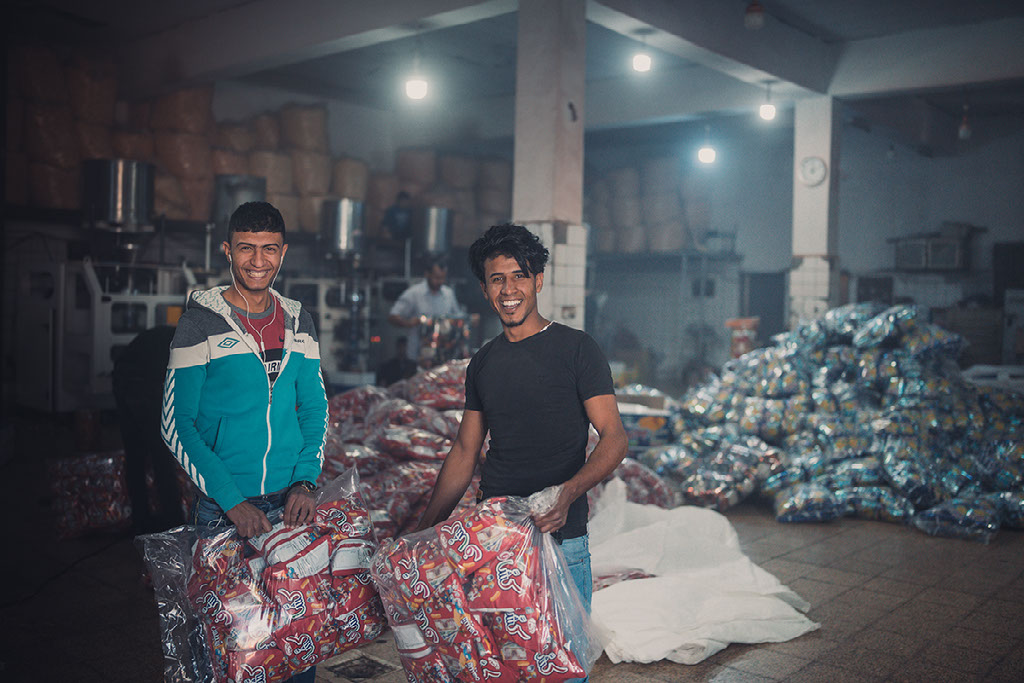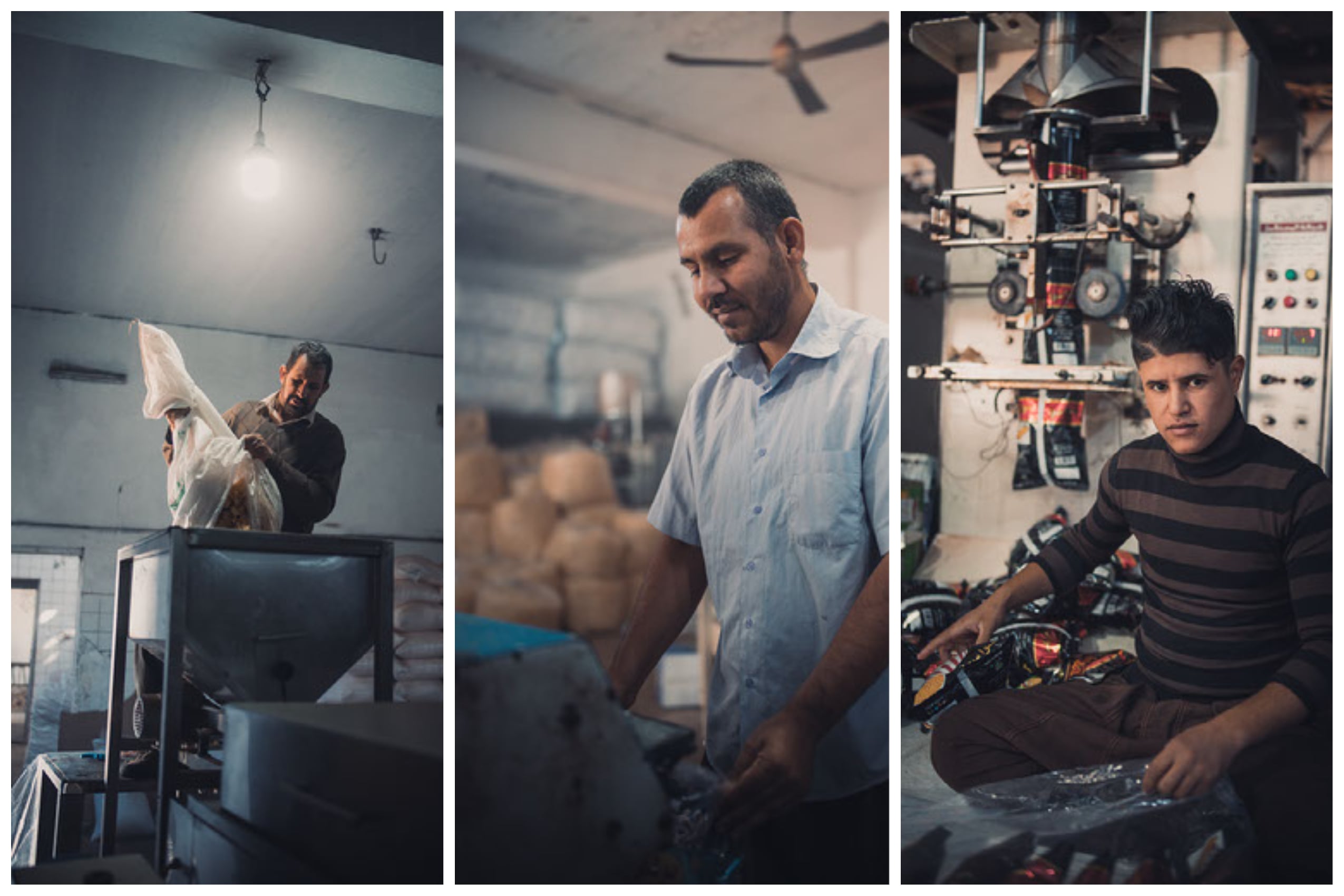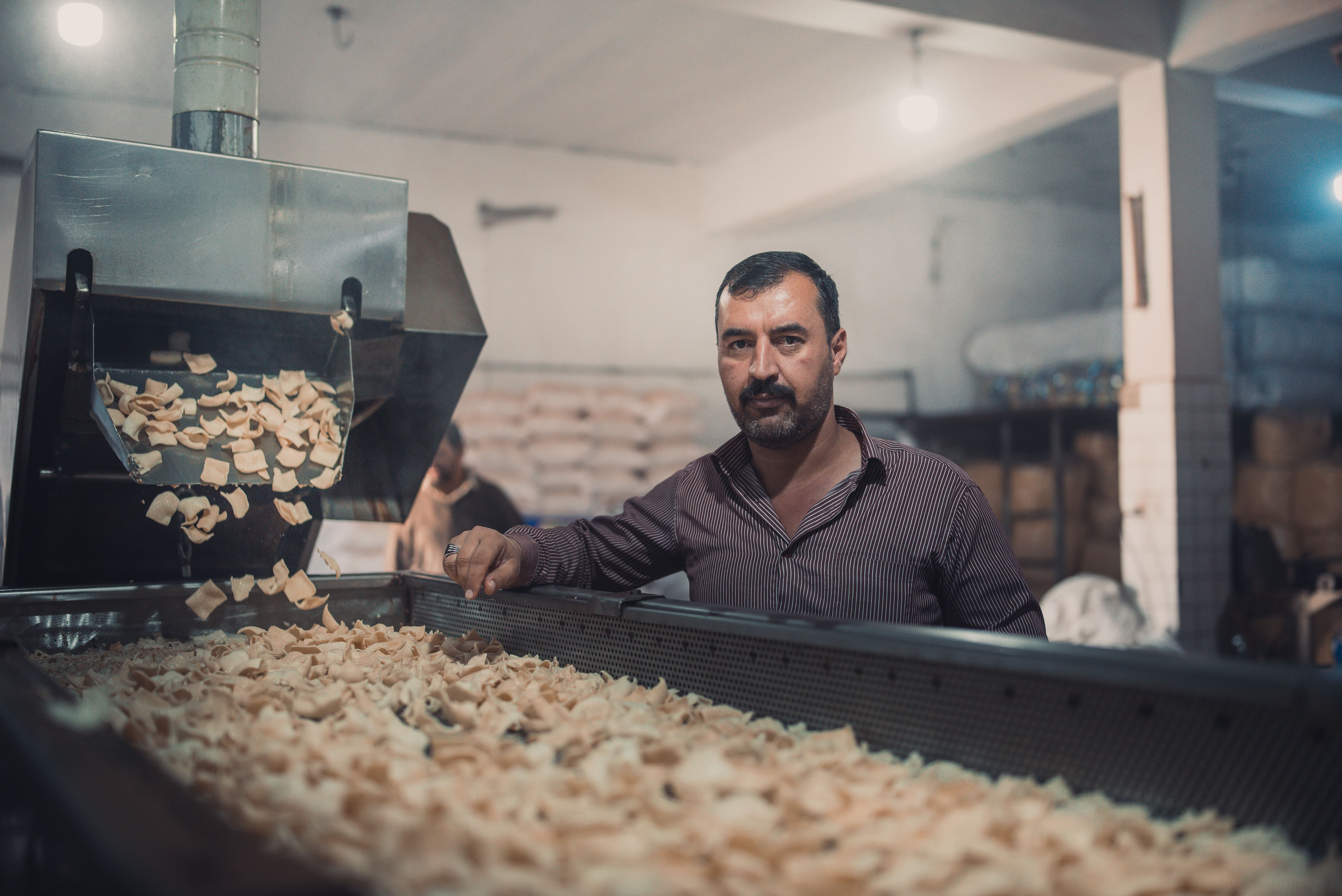Kalthoom* established Al-Miqdad Chips Factory in 1993. For over ten years the factory, staffed by 30 employees, produced and distributed bags of chips throughout Iraq.
After the 2004 unrest, the security situation in Mosul became unstable and Khaltoom received threats, which forced her to close the factory and seek refuge in Jordan.
.jpg)
In 2010, when the security situation started improving, Khaltoom asked her cousin to reopen the business for her. Jasim*, a 39-year-old father of five, restarted the chips factory and gradually expanded its workforce to 15. He was planning to purchase extra machines to increase production when ISIL attacked Mosul; factory-made products couldn’t be sent outside the city and the local market lost steam.
“The conflict with ISIL took a heavy toll on Mosul. The harm was physical, but also psychological. I try to avoid recalling the bad memories, but they will have a long-lasting effect,” said Jasim.
Al-Miqdad’s production ground to a halt, and most of factory’s machines were stolen during the conflict.

After the retaking of Mosul in July 2017, Jasim reopened the factory, bought the necessary equipment and recruited four employees to start the business again. Shortly afterwards, he heard about and applied for IOM’s Enterprise Development Fund (EDF) which supports the rehabilitation of small and medium business to encourage returns to liberated areas; his application was successful.
“The grant come at a great time. I equipped the factory with new machines and expanded my business, I now have 20 employees,” explained Jasim, Al-Miqdad’s current owner.

Jasim hopes that more businesses benefit from the EDF to boost the private sector; having received a grant himself, Jasim is now paying it forward by hiring unskilled employees - like Omran and Marwan - and providing them with training so they have better chances at finding employment in the future.

Omran* and Marwan*, both 19, met and became good friends in the Qayyarah Airstrip Camp for Internally Displaced Persons.
.jpg)
“Many people couldn’t stay at the camp any longer and moved out to rented houses, paying rent from their savings. But we didn’t have any money, we had no place to go outside the camp,” said Omran.

“My siblings and I were students, and my father was earning just enough to cover our day-to-day expenses,” continued Marwan.
Their employment at Al-Miqdad allowed their families to return to Mosul.

Abdullatif* is another young IDP who found a job Al-Miqdad Chips Factory. He was displaced along with his 11 siblings and settled in the Qayyarah Airstrip Camp. His father is ill, and his brother with a disability was injured; Abdullatif is his family’s sole breadwinner.
“Before I started working, I felt the weight of the world on my shoulders. I’d get panic attacks every day. Life is so expensive,” he said.
“But now I am hopeful. My salary is really helpful, and I feel privileged to be working. I’m grateful for this opportunity under these difficult circumstances.”

By investing in the private sector and enhancing local production capacity, IOM Iraq supports target sectors that have a high impact on the economic recovery and job creation.

Through the EDF, IOM Iraq supports the Chamber of Commerce and the Ministry of Labour and Social Affairs (MoLSA) as they help businesses comply with Iraqi labour laws and working standards relevant to the sector.
Al-Miqdad Chips Factory is supported by EDF, an initiative co-funded by KfW - German Development Bank.
* Names and some identifying details have been changed to protect the privacy of individuals.



